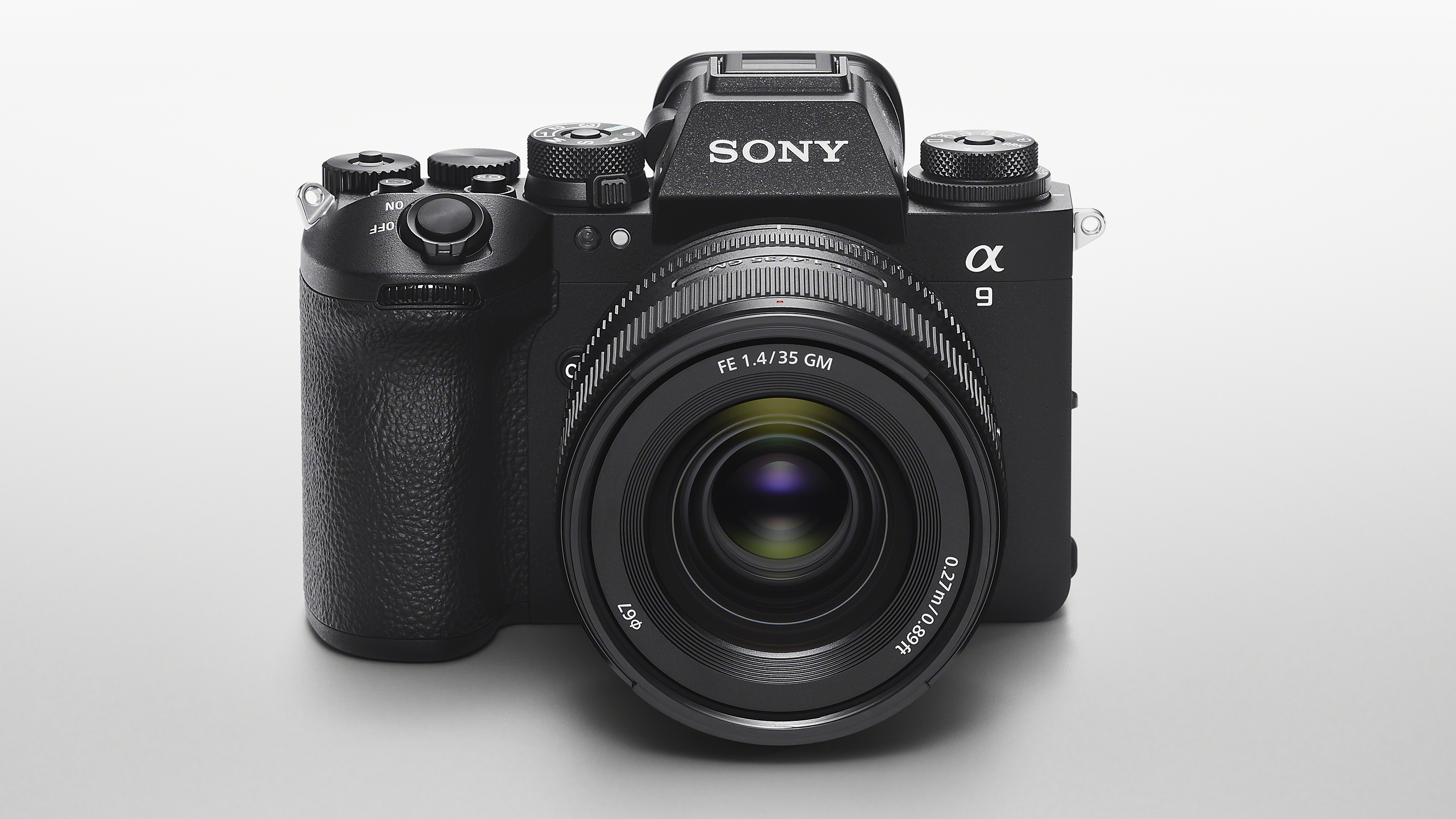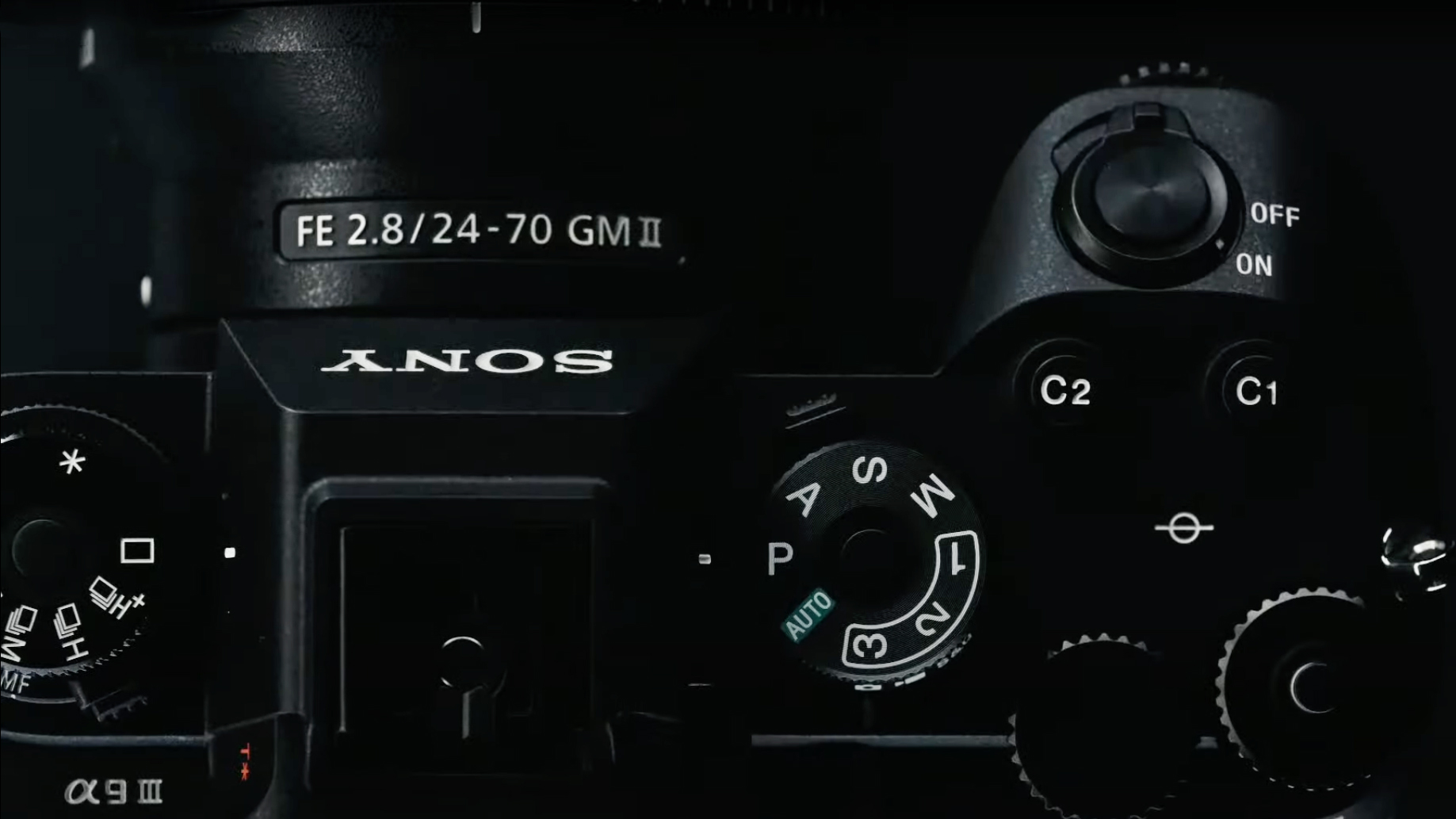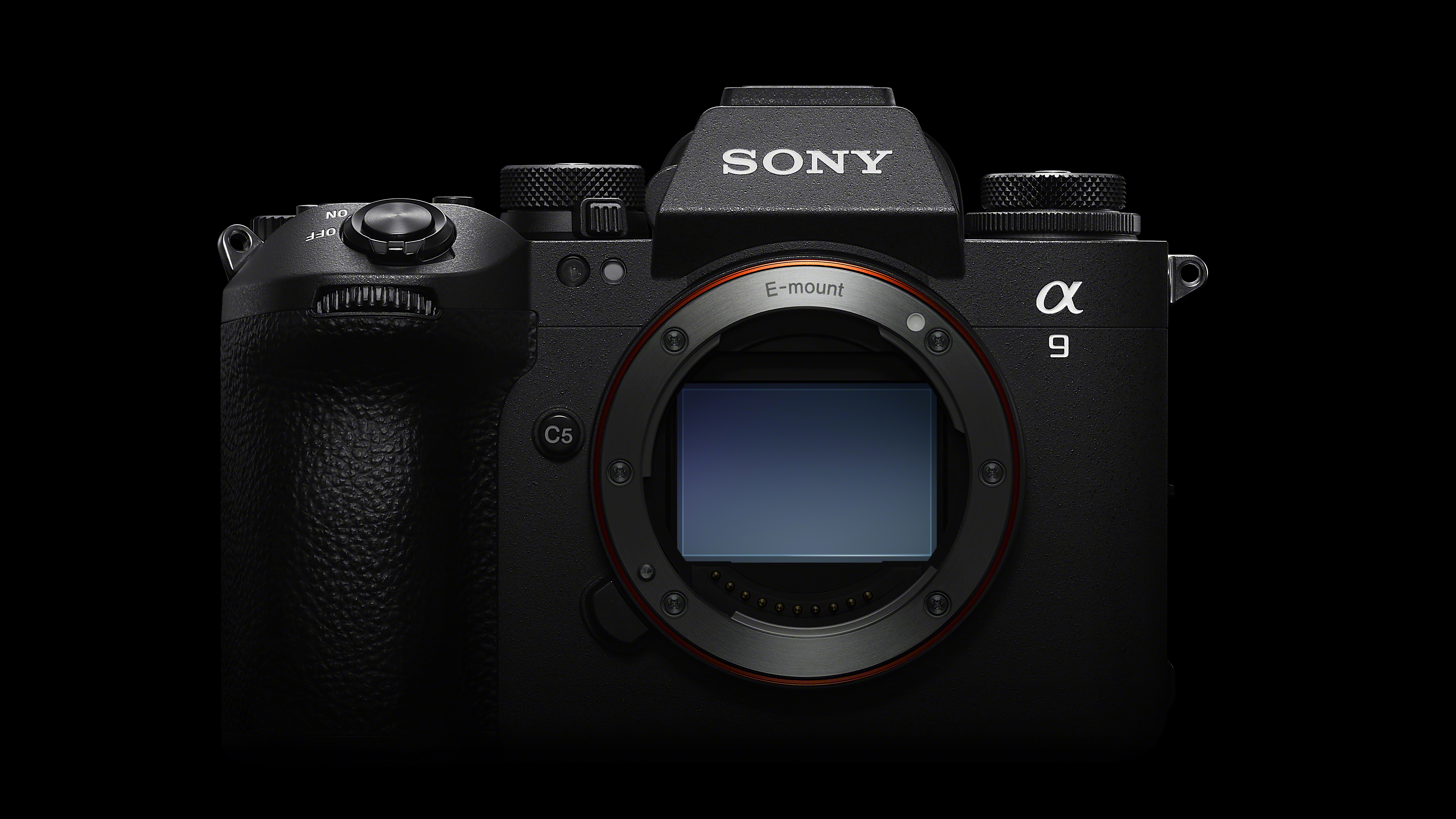The Sony A9 III is the fastest ever mirrorless camera with a new kind of sensor
The perfect sports and wildlife camera?

Sign up for breaking news, reviews, opinion, top tech deals, and more.
You are now subscribed
Your newsletter sign-up was successful
Sony has unveiled the first ever full-frame camera to use a global shutter, the Sony A9 III. This means it offers pro snappers a fastest-ever continuous burst shooting rate at full quality – a rapid 120fps for 24.6MP raw and JPEG photos.
During burst shooting, there's no blackout, and thanks to that global shutter – which means that all of the sensor's pixels are read simultaneously – there's no 'rolling shutter' distortion that you can sometimes get with regular sensors.
This means that fast subjects and camera movements, like panning along with moving bikes, are entirely possible without the worry of distortion in your photos. And this record-breaking mode for a full-frame camera comes with refreshingly few compromises, too.
Those burst sequences are only possible for a length of 1.6 seconds, but do include continuous 759-point autofocus – utilizing Sony's AI autofocus chip for its best-ever subject detection and tracking performance – and auto exposure.
The A9 III list price is $5,999 / £6,100 / AU$10,499 and it'll be available from the end of January 2024.
That isn't the end of the Sony A9 III's impressive specs either. The Sony A9 II successor can shoot at 1/80,000s (another record) to freeze action, though this is capped at 1/16,000s when you're shooting continuously.

The camera also boasts flash sync speeds at any shutter speed and is powered by the Bionz ZR processing engine, which is apparently eight times more powerful than the A9 II's processor.
The A9 III's in-body image stabilization system also offers up to eight stops of compensation, giving sports and wildlife photographers plenty of leeway when shooting handheld.
Sign up for breaking news, reviews, opinion, top tech deals, and more.
While it's predominantly an uncompromising mirrorless camera for sports photographers – many of whom will be hoping to take it to the 2024 Paris Olympics – the A9 III also has some impressive video specs.
It can shoot 4K/60p (oversampled from 6K) and also 4K/120p slow motion without any crop. With 10-bit 4:2:2 All-I recording, 16-bit raw output and support for both S-Cinetone and S-Log3 on board, the A9 III will be a fine tool for hybrid shooters who need to capture a mix of photos and video.
Alongside the A9 III, Sony unveiled the world's lightest f/2.8 telephoto prime lens for sports and wildlife shooters, and the pair look like a heavenly match.
Sony pushes the camera boundaries (again)

While Canon and Nikon have been straining hard to match Sony's level of camera innovation over the past decade, the A9 III shows that Sony is still the big boundary pusher – and this is one of the reasons why we named the tech giant as our brand of the year in the TechRadar Choice Awards 2023.
We've seen some very rapid sports cameras before like the Sony A9 II and, more recently, the Nikon Z9. The Z9 was the first pro camera to dispense with a mechanical shutter entirely, using a stacked 45.7MP sensor to deliver a completely digital shooting experience.
But on paper, the Sony A9 III has leapfrogged it again by becoming the first full-frame with a global shutter. While traditional stacked sensors like the one in the Nikon Z9 are fast, they can still occasionally be prone to issues like rolling shutter or limited flash sync speeds.
Because global shutters read all of the sensor's pixels simultaneously, those traditional electronic shutter downsides are no longer an issue. And that means the A9 III can shoot at 120fps (albeit in bursts of only 1.6 seconds) and offer flash syncs at any shutter speed.
It remains to be seen if there are any downsides to the Sony A9 III's use of a global shutter, but we're going hands-on with one right now and will bring you our first impressions very soon.
You might also like

Tim is the Cameras editor at TechRadar. He has enjoyed more than 15 years in the photo video industry with most of those in the world of tech journalism. During his time as Deputy Technical Editor with Amateur Photographer, as a freelancer and consequently editor at Tech Radar, Tim has developed a deeply technical knowledge and practical experience with cameras, educating others through news, reviews and features. He’s also worked in video production for Studio 44 with clients including Canon, and volunteers his spare time to consult a non-profit, diverse stories team based in Nairobi. Tim is curious, a keen creative, avid footballer and runner, and moderate flat white drinker who has lived in Kenya and believes we have much to enjoy and learn from each other.
- Mark WilsonSenior news editor